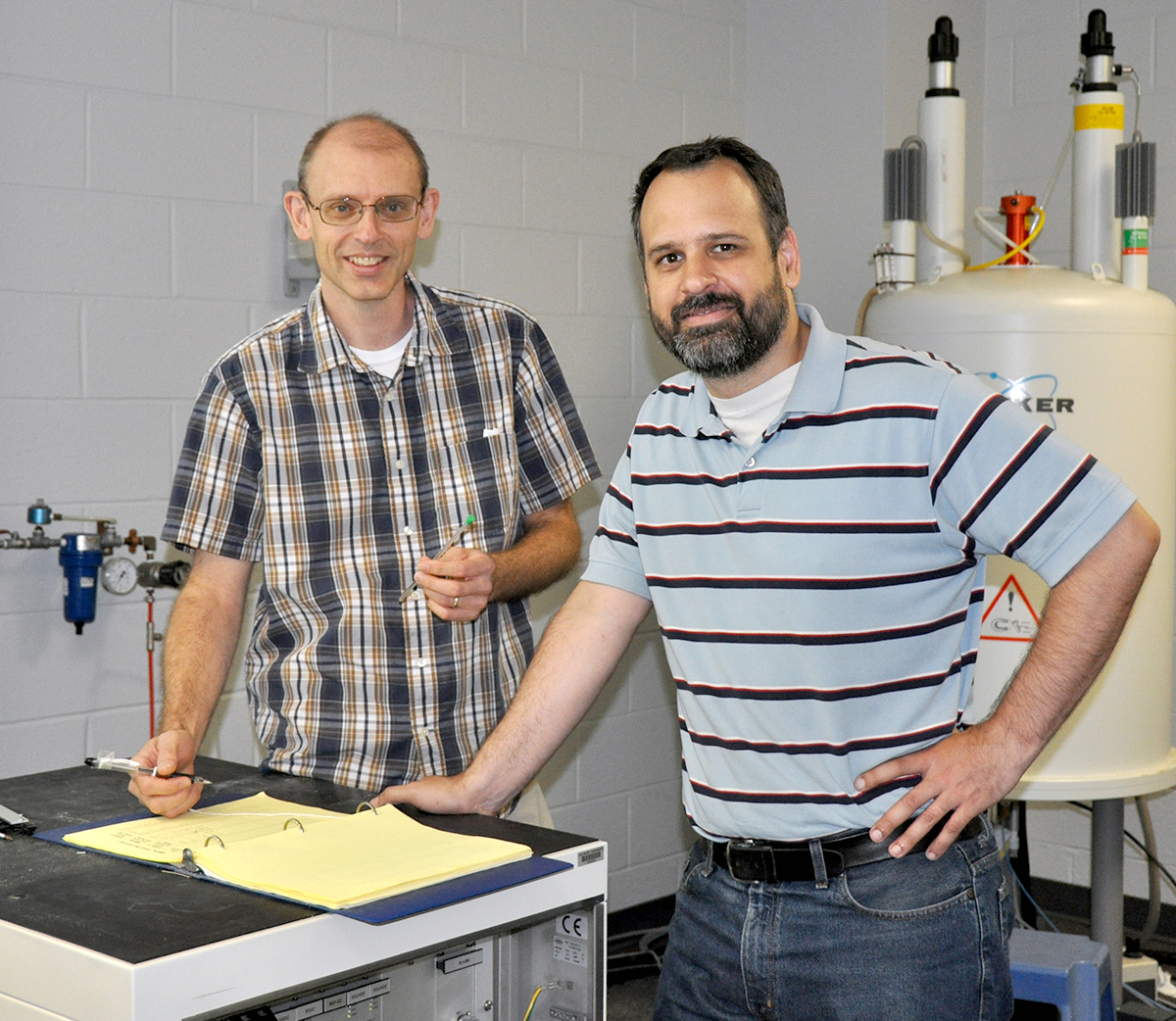NSF Awards $265K to SU to Upgrade NMR Spectrometer

SALISBURY, MD---The National Science Foundation is helping Salisbury University update a critical piece of research equipment for its Chemistry Department.
Drs. Seth Friese and Jose Juncosa received a $265,196 grant to upgrade the University’s 400 MHz Nuclear Magnetic Resonance (NMR) spectrometer and add an accompanying sample changer. This is one of three grants – totaling nearly $600,000 – that SU received from NSF in August.
Friese described the instrument as “an MRI for molecules.”
Used to analyze the content of samples, “it can tell us unique information about molecular structure, size or environment,” he said. “It’s the analytical tool for anyone who works with organic related molecules.”
“The information we can learn from using NMR spectroscopy is critical,” said Dr. Michael Scott, interim dean of the Richard A. Henson School of Science and Technology. “Our old spectrometer had been held together by good luck and the ingenuity of our technician and faculty for several years. Updating it allows us to continue providing top-notch undergraduate chemistry education and cutting-edge research opportunities.”
The new state-of-the-art model is expected to enhance the productivity of research and teaching activities within the Henson School. SU will have the capability to train more students, including growing numbers of majors in science, technology, engineering and mathematics (STEM) fields. “It’s integral to their preparation and success,” Juncosa said.
In addition, it’s expected to boost the quality and quantity of data for research in such areas as medicinal chemistry and biochemistry.
Friese’s work involves making new molecules that more efficiently and safely separate ions that are commonly found in nuclear waste. Juncosa is mimicking neurotransmitters to improve understanding of neurological diseases to help patients get better treatments. Both involve students in their research.
Juncosa emphasized that in addition to SU chemistry students and faculty, the instrument also will be used by SU’s Biology Department and the University of Maryland Eastern Shore’s School of Pharmacy.
“The machine makes our research possible and expands access to benefit others in the region,” he said.
Having the spectrometer also is a requirement for SU’s American Chemical Society-certified chemistry program. It’s used by over 120 students each year, plus faculty. The autosampler will help relieve scheduling issues, since it’s needed for research and capstone courses, as well as summer research programs.
For more information call 410-543-6030 or visit the SU website at www.salisbury.edu.
